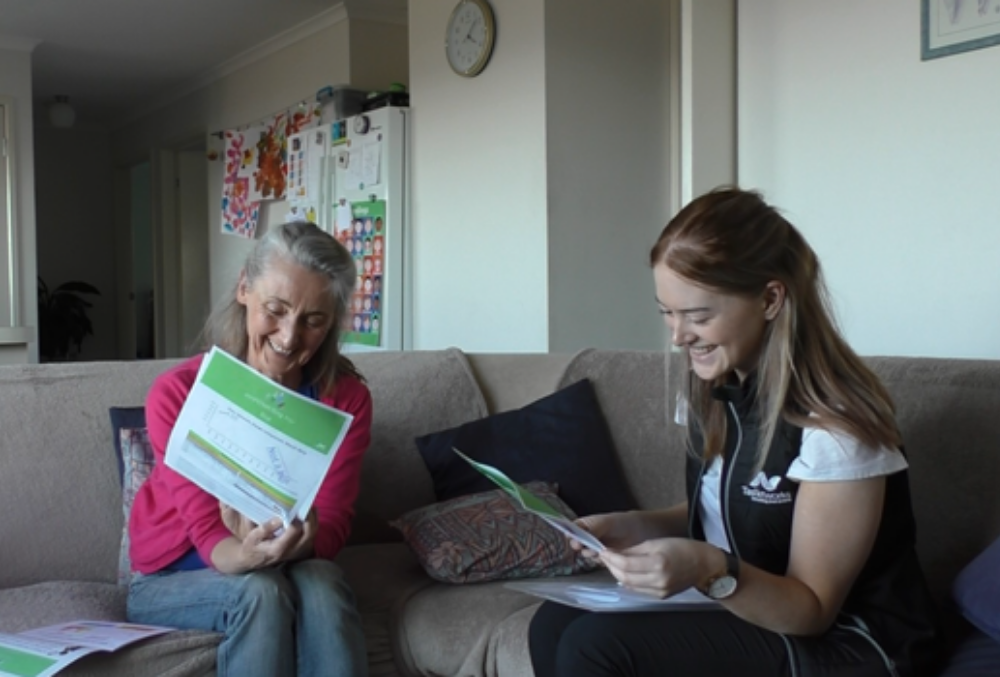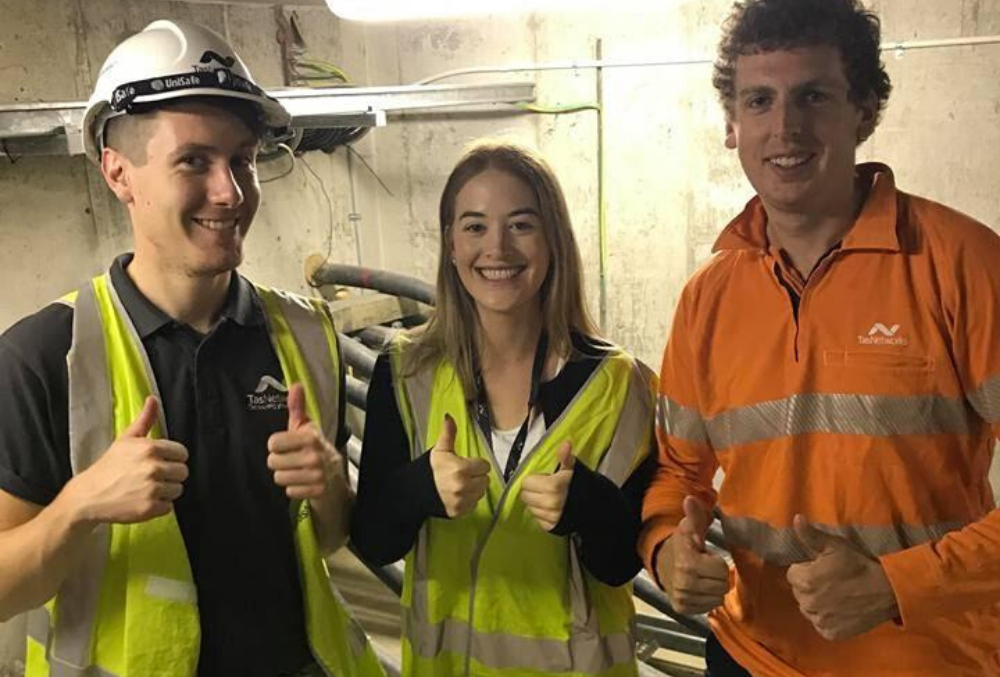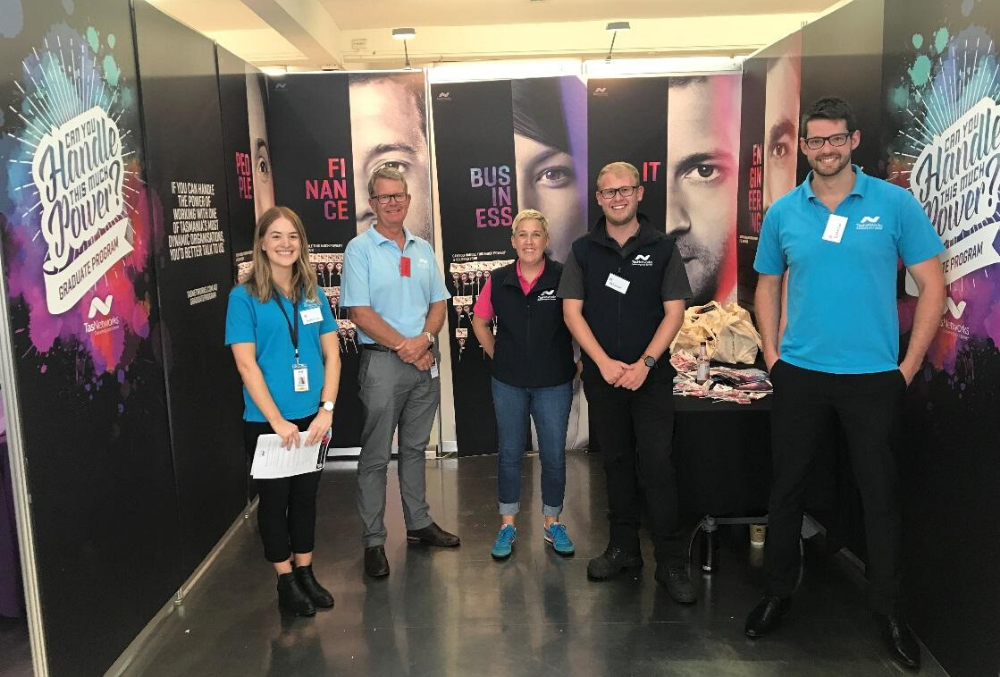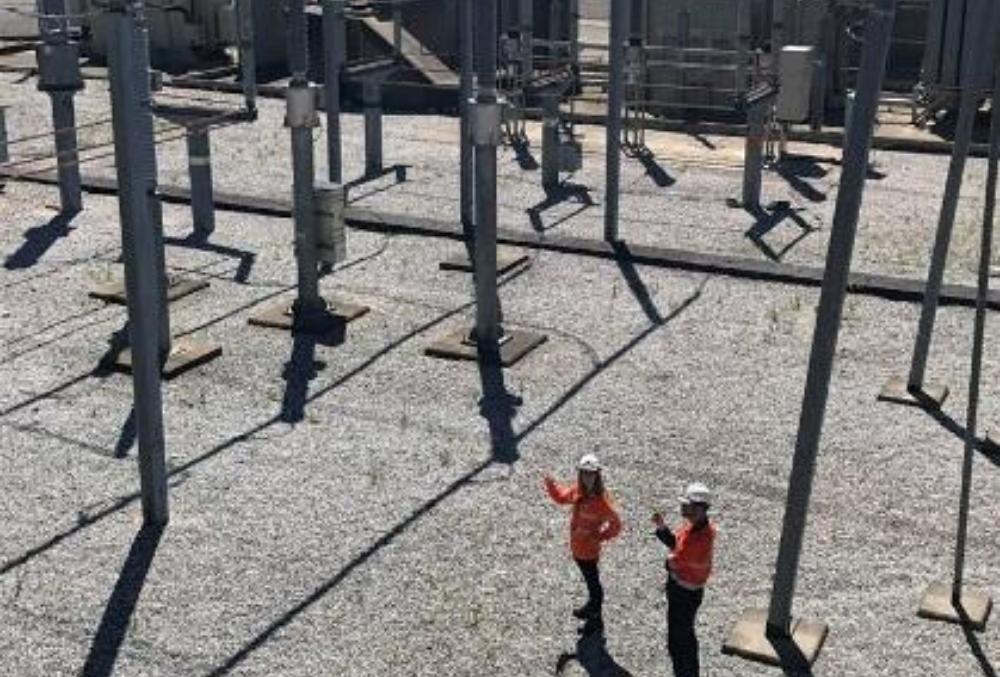TasNetworks
Shannon Culic
What's your name and job title?
My name is Shannon Culic and I am project coordinator for Revenue Resets at TasNetworks.
What did you study? When did you graduate?
I graduated in December 2015, upon completion of a Bachelor of Arts with a double major in International Relations and History.
Where did you grow up? Tell us a little about your education and any experience you’ve had abroad.
I grew up and completed all of my study in Hobart, Tasmania. Although I haven’t lived outside of Hobart, I have travelled abroad several times throughout my schooling.
One of my most memorable trips was to England during my second year of university, where I completed a summer school at Cambridge University. This was an important turning point in my studies as it was here that my passion for learning ignited and I came back to university with a renewed sense of purpose.
While at university I also maintained a part-time job. Although difficult at times to balance work, study and general life, this experience cemented an appreciation of the importance of time management and organisation skills.
How did you get to your current job position?
I began the TasNetworks Graduate Program in October 2017. During my time in the program, I completed two rotations: one in Business Strategy and the other in Revenue and Pricing Regulation. I had just begun my third rotation in National Electricity Market Strategy and Compliance when I was given the opportunity to be involved in the Revenue Reset project. This project is forecasting and proposing our revenue for 2019–2024. Regulated electricity network businesses, such as TasNetworks, must periodically apply to the Australian Energy Regulator (AER) to assess their revenue requirements (typically, every five years). I jumped onto the project just as the AER had given their draft decision, which gave us two months to prepare and submit a revised proposal, based on both the AER’s draft decision and stakeholder feedback.

How did you choose your specialisation? Were you weighing up any other alternatives before choosing this specialisation?
I had initially planned to move to either Melbourne, Sydney or Canberra to complete a graduate program but when I applied for TasNetworks and completed the resourcing day, I knew this was the business I wanted to work for! There are so many opportunities at TasNetworks to learn new skills and be involved in diverse and interesting areas of work. This was my main criteria for applying for graduate programs – a business where I could be challenged and encouraged to grow. I didn’t ever want to be bored in my career and I wanted to ensure that I was working for a business where I could expand my knowledge and skills. I have definitely found that with TasNetworks.

What was your interview process like? What kind of questions were you asked?
My interview mainly focused on behavioural questions where I used the STAR method to demonstrate the situation, task, action and result. I used my experience from both the university and my part-time job to answer these questions. I was one of the first potential new recruits to finish their interview and I was afraid that this was a bad sign, but as it turns out, it’s okay if you finish your interview early!
Throughout my studies and work experience, I have had a lot of interviews so I didn’t find this one too overwhelming. You have to remember that the interview is also your chance to find out if this is the business you want to work for. Although a cliché, my number one tip for interviews is to just be your authentic self and honest in your answers. Interviewers know that no one is perfect and it is really important to demonstrate times where you have failed and made mistakes but have overcome this, moved forward and grown from that experience.
Suppose a student was considering your career. What would you advise them to study? Are there any soft skills it would be beneficial for them to develop? Should they pursue any sort of work experience?
I think I would advise them to study or learn about economics, as I neglected this at university and it has resulted in a steep learning curve in my current position. However, there are a lot of new skills I am learning on the job and it is important to remember that you are not expected to know everything before beginning your career.
I would definitely encourage anyone studying to also seek part-time work outside of university. Although as previously stated this can be challenging, I am confident that I would not be in this position without that experience. Working part-time added depth to my interview and equipped me with skills that I have brought into my current position.
Also, if you get the chance, study or travel abroad! Seeing the world is so important to understand who you are as a person and what you want to get out of life.

What does your employer do?
I work for TasNetworks, Tasmania’s provider of both distribution network services (the poles and wires) and transmission network services (the large towers and lines) to customers in Tasmania. TasNetworks is a really interesting business at it covers diverse areas of work, which means there are plenty of opportunities to learn new skills within the one business.
What are your areas of responsibility?
I am the project coordinator for Revenue Resets, which means I am assisting with the development and submission of our revised proposal. This proposal sets out the capital and operating expenditure TasNetworks proposes to incur to provide electricity distribution and transmissions services; the revenue TasNetworks proposes to recover from its customers for the provision of those services; and the methodology we propose to use to set our prices each year. As we are a regulated business, the AER will ultimately determine our revenue based on this proposal, so it is crucial that our proposal is precise.
Can you describe a typical work day? What was the last thing you worked on?
I don’t think I have had a ‘typical’ work day in my position as I never know what will be thrown my way when I arrive in the morning. Depending on where we are in the development/submission process, my day will either be spent helping various internal staff with specific enquiries about our proposal – ensuring that the supporting documentation is complete and any confidential information is declared – or finalising papers that illustrate various positions, issues or risks on our proposal to internal senior management. Some days will be spent predominately at my desk finalising papers, whereas other days I will be running between meetings to confirm our position on various aspects of our proposal.
No matter how busy my day is, I always ensure I take time out for lunch – to rest and focus on something other than work for an hour. This ensures that my productivity remains high for the afternoon and I don’t burnout too early.
What sort of person succeeds in your career?
You definitely have to be organised, have strong attention to detail and have a high level of internal stakeholder management skills. As the project covers various areas of the business, being able to maintain relationships across the company while managing competing interests is crucial to the project’s success. You have to be able to emphasise and understand varying positions while ensuring that the proposal supports the business’ overall strategy and position.
What are the career prospects with your job? Where could you or others in your position go from here?
Although the project itself is quite industry-specific, the skills I have learnt so far are definitely transferable to another position or industry. Project management skills are highly desirable in most industries and are transferable to different positions outside of project management.
Could someone with a different background do your job?
I definitely think someone with a different background could do my job. Although my skills and qualifications may have initially led me to TasNetworks’ Graduate Program, I am confident that it was my eagerness to learn that landed me with my current position. I believe it is not so much your background, but rather your current attributes and the approach you bring to work every day which will ultimately determine your success in whichever career path you choose.
What do you love the most about your job? Which kind of task do you enjoy the most?
The best thing about my job is learning so much about the different areas of not only our business but also the electricity industry more broadly.

What’s the biggest limitation of your job? Do you bear a lot of responsibility? Do you have to work on weekends? Are the stress levels high?
The only con is that there are tight deadlines that sometimes result in long days and late nights, but fortunately my leader is a big advocate of having work-life balance, so if I have to work late one night I can usually have a shorter day the next day.
There is a lot of responsibility in my current position as our proposal will determine our revenue for the next five years. Our work is also very time sensitive with tight deadlines. Luckily I haven’t had to work on weekends but I have had late nights. Some days the stress levels are high but I get through that by focusing on the job at hand, rather than trying to balance too many tasks at once. I also have built a strong network of support from the Graduate Program, which ensures that while sometimes stressful, work still remains enjoyable.
What would your career be if you weren’t doing what you’re doing now?
I think if I didn’t go into the government/policy sphere I would have pursued a career in photography. I was very close to studying fine arts but changed my mind just prior to beginning university. I still like to pursue photography as a hobby and I feel very fortunate that I can balance both my career and my hobbies.
Which three pieces of advice would you give to a current university student?
1. My first piece of advice would be to know why you’re studying what you’re studying. For example, consider:
- Is this an interest of yours?
- Do you want a job in this sector?
- Will this course lead you to where you want to be?
I went straight to university from year 12 and this was mainly because I felt it was the path I had to follow. I spent my first 18 months at university feeling very disillusioned and lost. It wasn’t until I studied abroad and met fellow students who were so passionate about what they were studying that I felt like I had a purpose at university.
2. My second piece of advice would be to build a strong network of support in your life, whether at work or at home. It might sound counterintuitive but having lunch with fellow graduates every day and enjoying time with friends on the weekend has enabled me to succeed in my career, as I don’t feel overwhelmed with work and I come back after lunch/the weekend feeling rejuvenated.
3. My last piece of advice would be to recognise the opportunities you have at university and say ‘yes’ to as many of those as you can! Whether you join a social club, learn a new language, join a sports team or travel abroad, these activities will not only help you learn more about yourself and your interests but will also add depth to your interviews upon graduation.